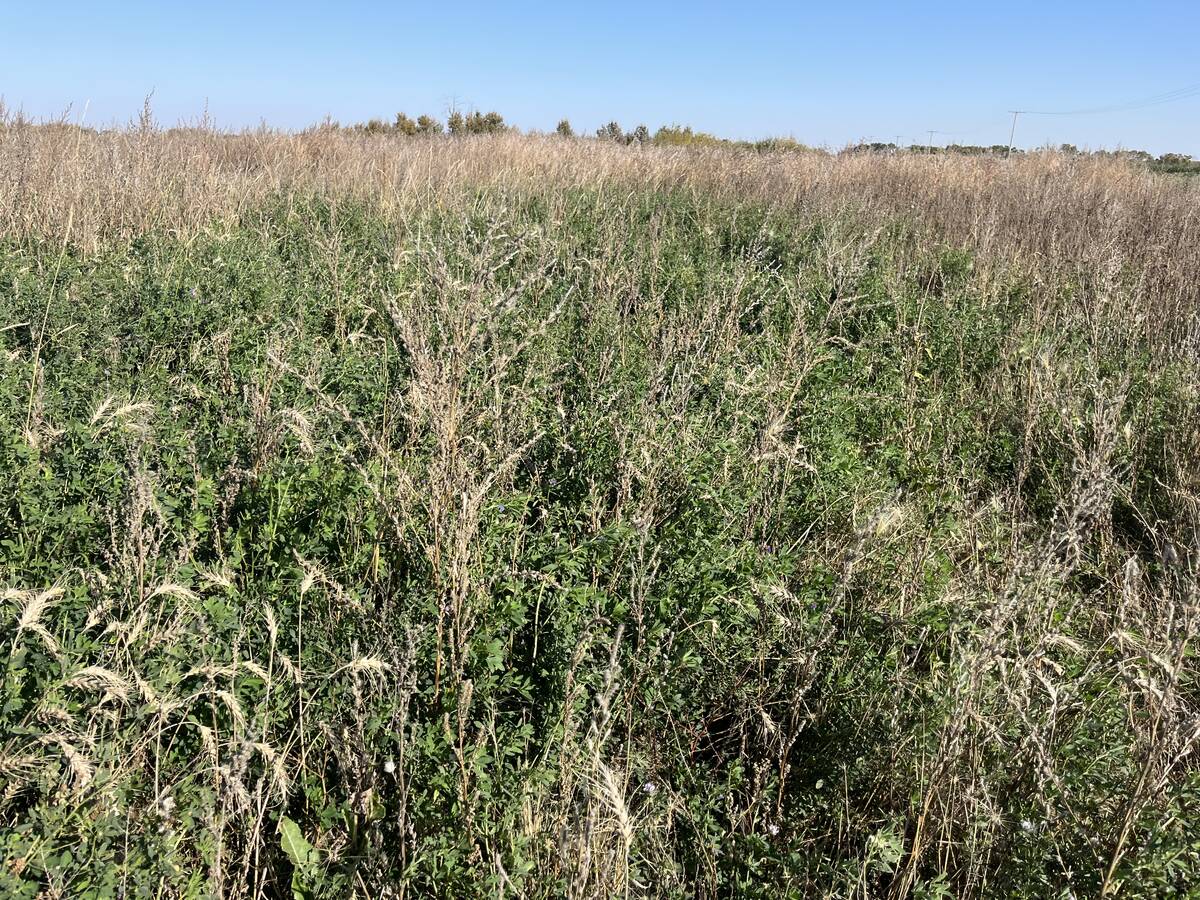British Columbia has established a task force it hopes will generate new ideas to help rebuild the province’s sagging beef sector.
“The focus is on regulatory change and initiatives and steps that we can take within the current resources that the ministry has available,” said provincial agriculture minister Steve Thomson.
There is no additional government money available.
The task force consists of government, B.C. Food Processors Association, B.C. Cattlemen’s Association, B.C. Association of Cattle Feeders and B.C. Breeders and Feeders Association.
Read Also

Dormant seeding forages frees up farmer time and gets ahead of weeds
Dormant seeding isn’t common practice and can appear daunting, but there are some techniques to give Manitoba farmers an edge
The group plans to meet monthly with a final report due in October with solutions to help the industry.
BCCA president Roland Baumann, who co-chairs the new committee, said few issues are new to the sector that has been feeling the pinch as the cow herd shrinks and more people leave the industry. There are about 5,000 B.C. ranchers involved in the $250 million industry.
“We still have the challenges ahead of us like the fiscal constraints, all the changes and proposals that we talked about will ultimately cost some money. Under the current conditions it is very tough to find that money,” he said.
He brought a list of key issues to the table.
Cattle producers need financial help and want reform to the agriculture land reserve, reduced regulatory burdens, as well as crown range changes and water rights guarantees.
They also want agriculture to receive a higher profile within the B.C. government. They have asked for relief from the provincial carbon tax and the seven percent provincial sales tax reform.
However, B.C. agriculture minister Steve Thomson said there would be no change to carbon tax, which charges an extra 3.6 cents per litre on fuel. Agriculture land reserve regulations could be reviewed.
“Certain regulations that are part of the ALR could be part of the discussion,” Thomson said.
And, if the beef sector implements some change, the benefit cold spill over to other agriculture sectors who also want tax and land reforms.
“Potentially there are regulatory issues that we are addressing that may have some broader implications to other parts of the industry and other sectors. We are not limiting it at this point,” said the minister.
Other regulatory changes might cover the new meat inspection act, which states all meat sold in B.C. must be processed in a provincially inspected plant. The province is also willing to look at improved agriculture waste disposal including specified risk materials to prevent the spread of BSE.
The government is willing to promote local food to encourage B.C. resident to eat more provincially produced products.
The cattlemen’s association started a round table last year to develop a B.C. branded beef program but found it difficult to define and promote as either a grass fed or short fed product, said Baumann.
“A big challenge is the supply if you create a niche market product.
“The issue is we are cattle producers, we are not cattle marketers,” he said.















